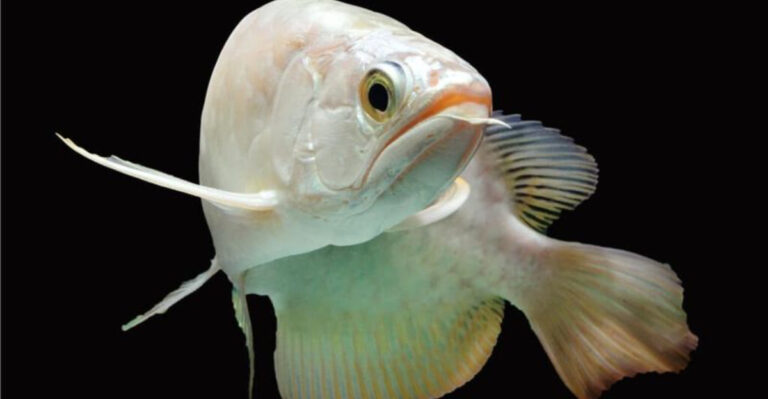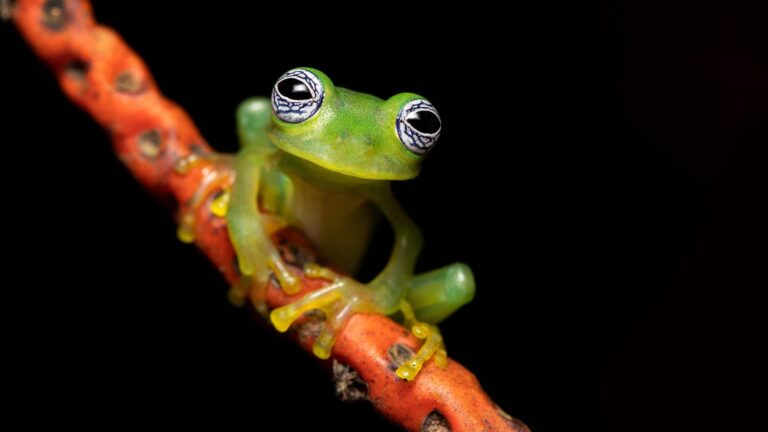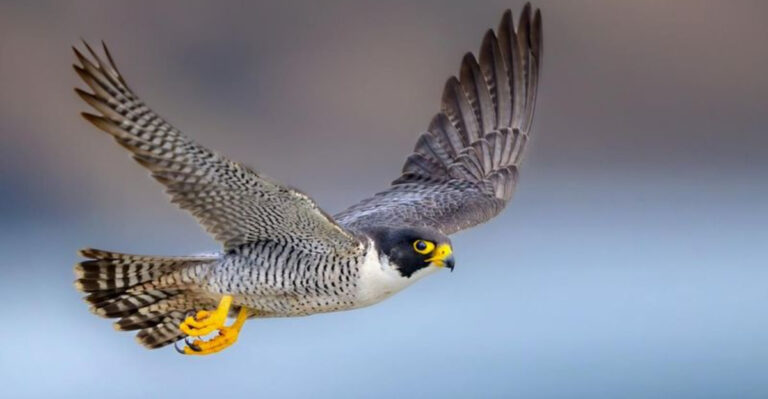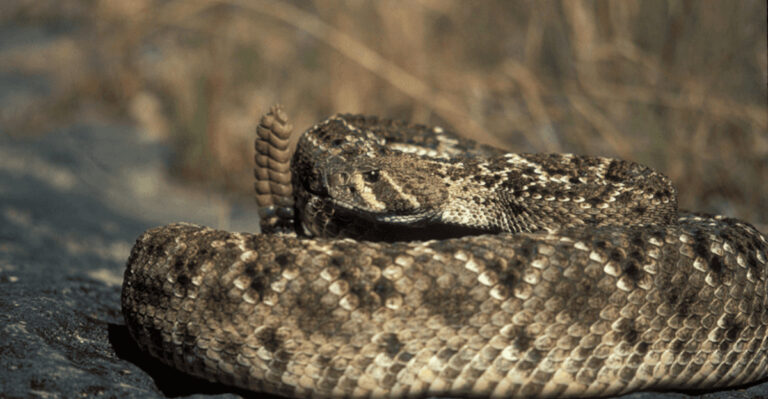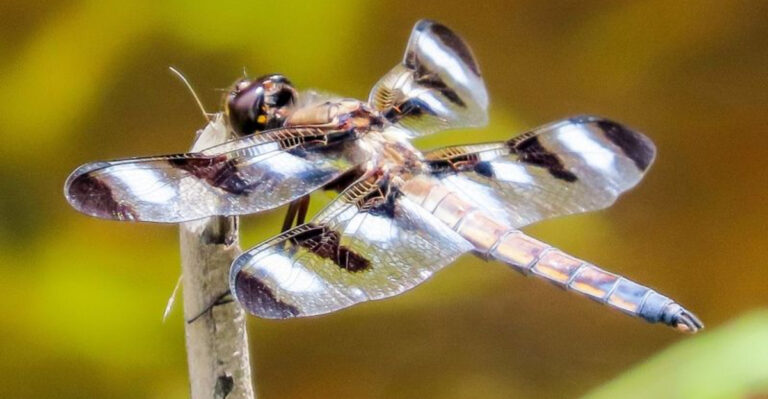How To Keep Squirrels Out Of Garden Beds And Potted Plants
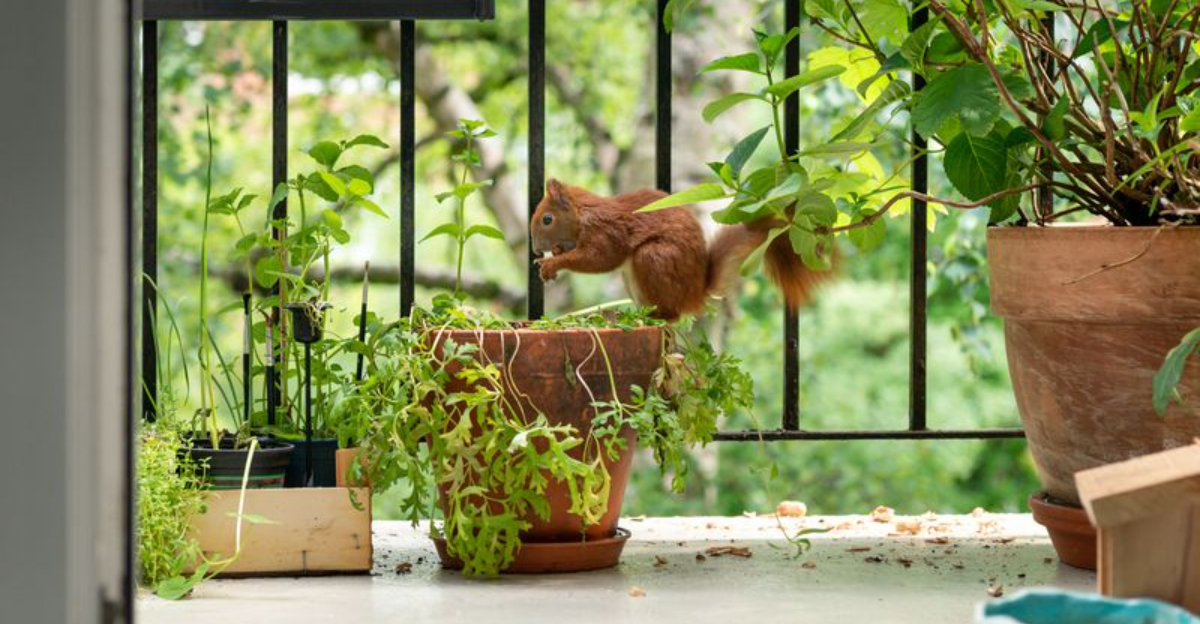
Garden raiders with bushy tails can turn your prized plants into their personal buffet in no time. Those nimble squirrels dig up bulbs, munch on seedlings, and even steal ripening vegetables right before harvest time.
Protecting your garden from these acrobatic critters doesn’t have to mean declaring all-out war – there are plenty of humane and effective solutions to keep your plants safe.
1. Spicy Pepper Sprinkles
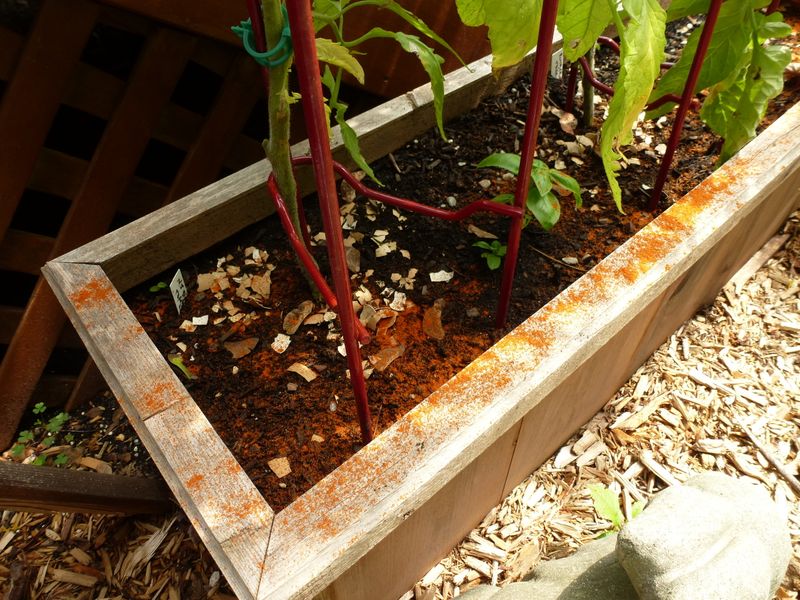
Squirrels hate spicy flavors! Sprinkle cayenne pepper, red pepper flakes, or chili powder around your plants and on the soil. The burning sensation on their paws and in their mouths sends them scurrying away fast.
Reapply after rain or heavy watering for continued protection. For extra potency, mix the spices with water and a drop of dish soap to create a spray for plant leaves.
2. Motion-Activated Sprinklers

Garden guardians that surprise unwanted visitors! These clever devices detect movement and shoot a quick burst of water, startling squirrels without hurting them. The unexpected spray teaches them your garden isn’t worth the trouble.
Most models allow you to adjust sensitivity and spray direction. Position them strategically around vulnerable plants for maximum coverage and squirrel-free gardening.
3. Protective Mesh Covers
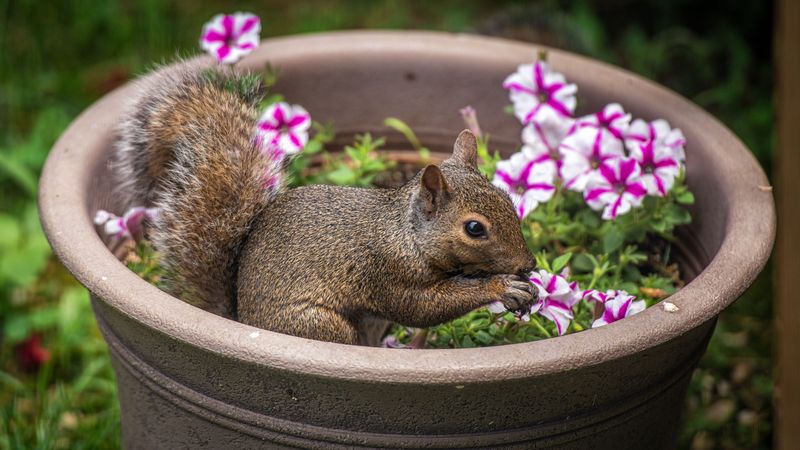
Physical barriers work wonders! Cover your garden beds with chicken wire, hardware cloth, or plastic mesh to create an effective shield against digging paws. Cut pieces to fit each bed and secure edges with garden staples or rocks.
For smaller plants, create dome-shaped covers using bent wire. Leave enough room for plant growth while keeping determined squirrels from reaching your precious seedlings.
4. Blood Meal Fertilizer
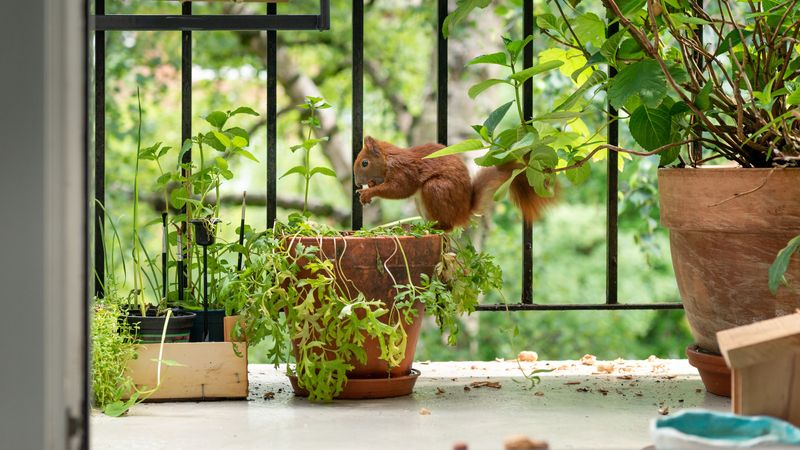
Double-duty garden helper! Blood meal not only feeds your plants with nitrogen but also emits an odor that squirrels find terrifying. Sprinkle it around the base of plants and along garden borders.
The scent triggers predator alerts in squirrels’ brains, making them avoid your garden entirely. As an added bonus, your plants will grow lusher and greener thanks to the nutrient boost.
5. Ultrasonic Repellers
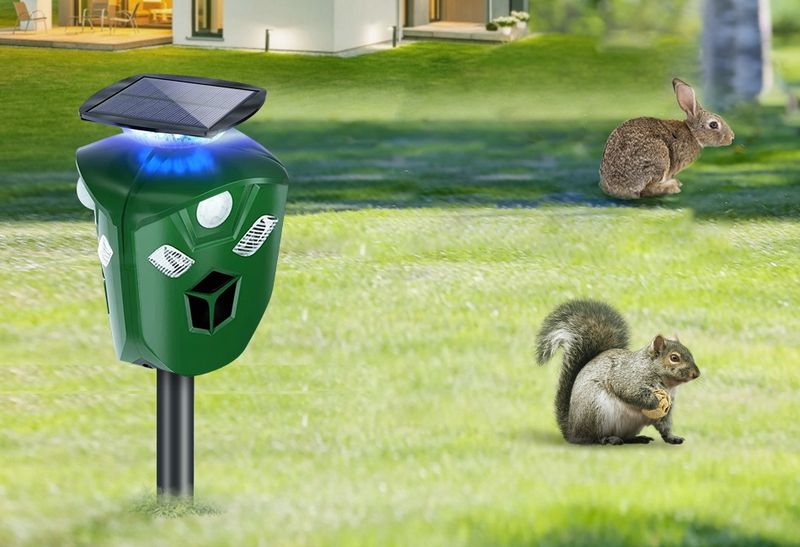
Silent to humans but annoying to squirrels! These solar-powered devices emit high-frequency sounds that drive squirrels batty while being completely undetectable to human ears. Place them throughout your garden for maximum coverage.
Many models include motion sensors that activate only when critters approach. The changing sound patterns prevent squirrels from getting used to them, ensuring long-term effectiveness for your garden protection.
6. Predator Urine Granules
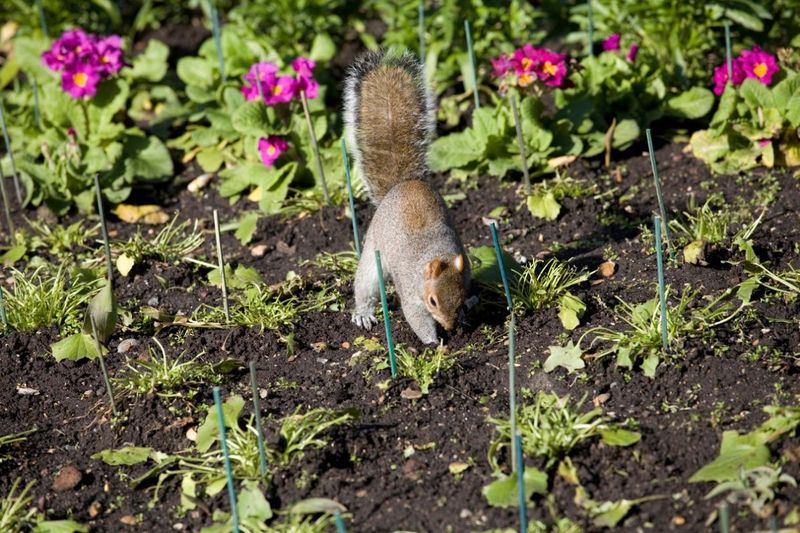
Fake danger signals work like magic! Commercially available predator urine granules from foxes or coyotes trick squirrels into thinking deadly hunters patrol your garden. Sprinkle around the perimeter of beds and refresh after rain.
The natural fear response keeps squirrels away without harming them. While the idea seems gross to us, it’s one of the most effective natural deterrents that won’t damage your precious plants.
7. Decoy Owls With Moving Parts
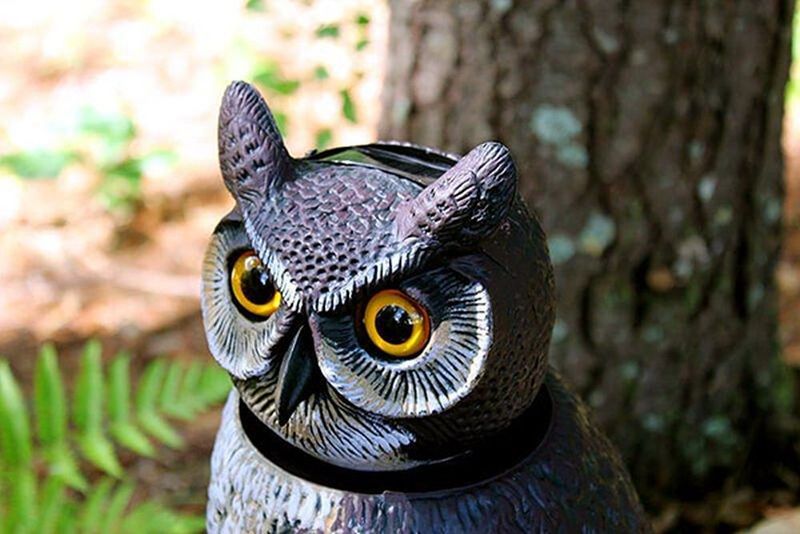
Fake predators can be surprisingly effective! Modern decoy owls with bobbing heads or reflective eyes trigger squirrels’ natural fear responses. Move the owl to different garden locations every few days to maintain the illusion.
Some models include solar-powered movement or sound features. The combination of threatening appearance and unpredictable movement convinces squirrels that your garden is too dangerous for snacking adventures.
8. Coffee Grounds Barrier
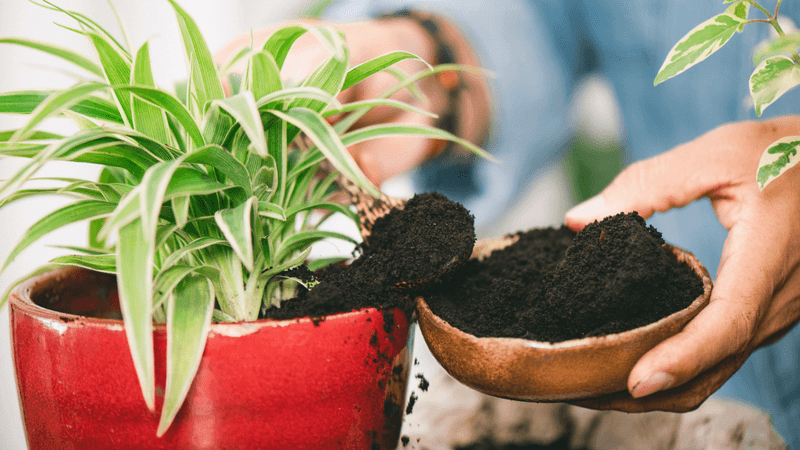
Breakfast leftovers become garden saviors! Used coffee grounds spread around plants create an aromatic barrier that squirrels hate. The strong smell masks the scent of bulbs and seeds while adding organic matter to your soil.
Ask local coffee shops for their used grounds – most are happy to give them away. Refresh your coffee ground barrier weekly for best results, especially after rain washes away the potent aroma.
9. Squirrel-Resistant Bulb Cages
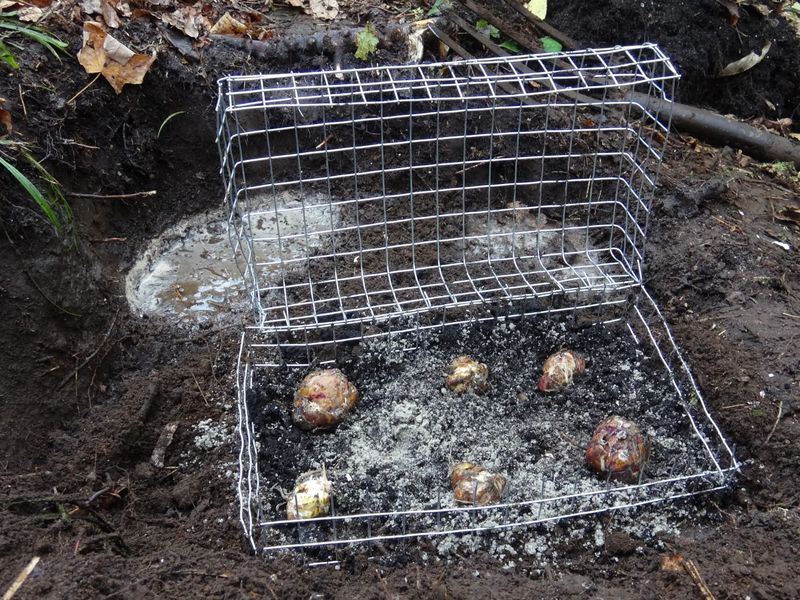
Underground protection for precious bulbs! Create wire mesh cages to surround bulbs before planting. Cut hardware cloth into squares, fold into boxes, place bulbs inside, then plant the entire cage.
The mesh allows roots and stems to grow through while blocking digging paws. This method works especially well for tulips, crocuses, and other bulbs that squirrels find irresistibly delicious. Your spring flowers will thank you!
10. Companion Planting With Daffodils
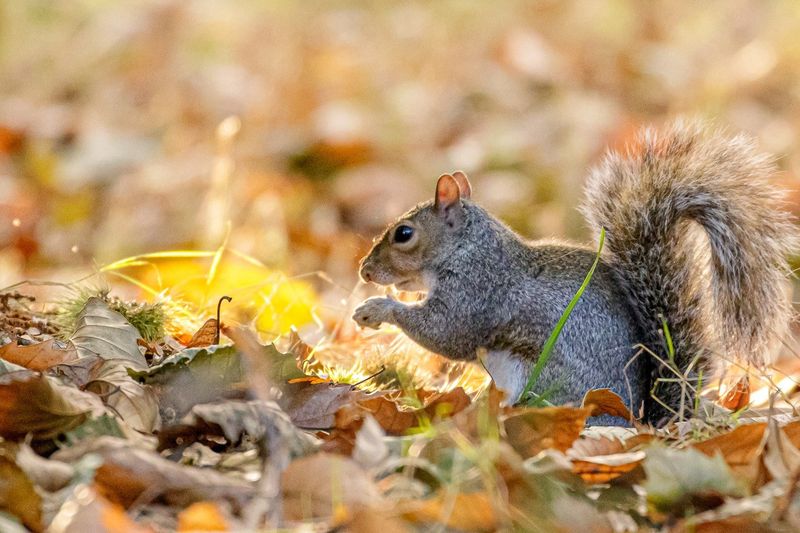
Natural plant allies in the squirrel battle! Daffodils contain lycorine, making them toxic and terrible-tasting to squirrels. Plant them around the perimeter of beds or interspersed with vulnerable plants as living repellents.
The bright yellow blooms add spring color while creating a protective barrier. Squirrels learn to avoid areas where daffodils grow, keeping your other plants safer from their hungry raids.
11. Vinegar-Soaked Rags On Stakes
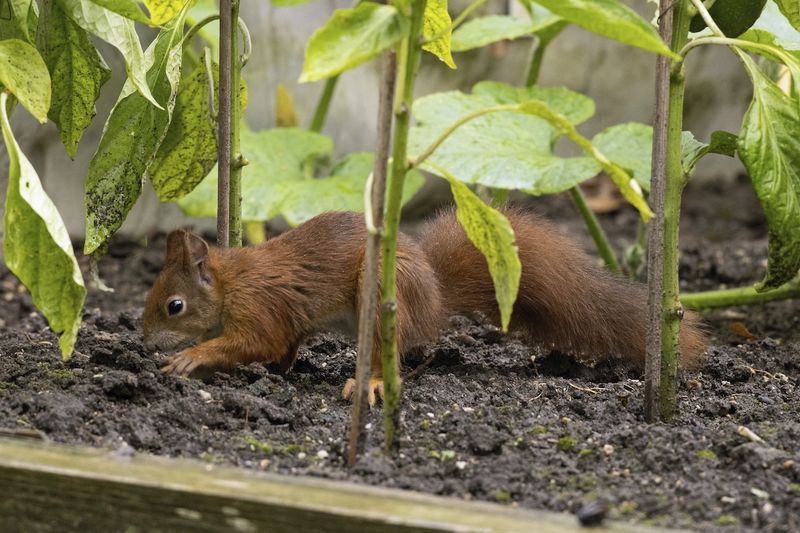
Pungent perimeter guards! Soak old rags in white vinegar and attach them to stakes placed around your garden beds. The strong smell offends squirrels’ sensitive noses and keeps them at bay.
Replace the vinegar every few days as the scent fades. This method works especially well for protecting newly planted areas when seedlings are most vulnerable. The smell dissipates quickly for humans but remains effective against squirrel visitors.


